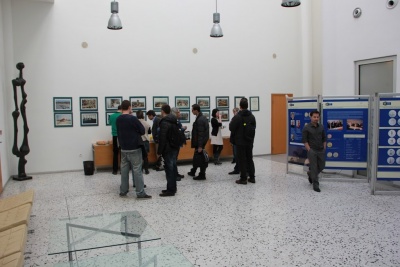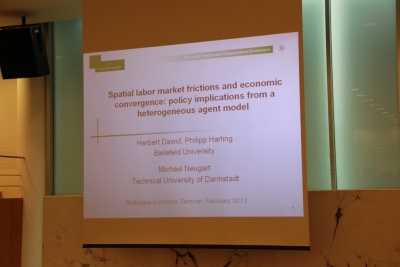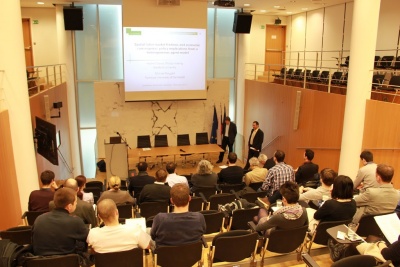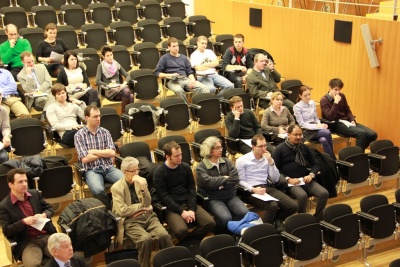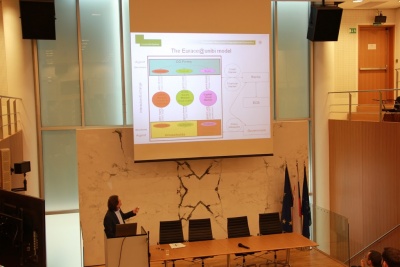Profesor Herbert Dawid (Bielefeld University, Germany) mal vo februári zaujímavú prednášku na tému:Spatial labor market frictions and economic convergence: policy implications from a heterogeneous agent model. Podujatie sa uskutočnilo v rámci pravidelného cyklu Bratislava Economic Seminar.
Abstract
This paper studies the effectiveness of different types of cohesion policies with respect to convergence of regions. A two-region agent-based macroeconomic model is used to analyze short-, medium- and long-term effects of policies improving human capital and fostering adoption of technologies in lagging regions. With fully integrated labor markets the human capital policy positively affects the economically stronger region but reduces production in the targeted weaker region. Subsidies for high technology investment in the weaker region have a positive local output effect and a negative effect on the neighboring region, thereby fostering convergence. When labor markets are not integrated both policies support convergence.
Prílohy
FOTOGALÉRIA
